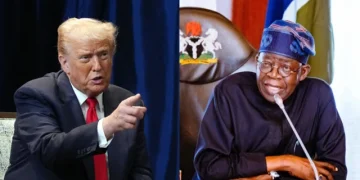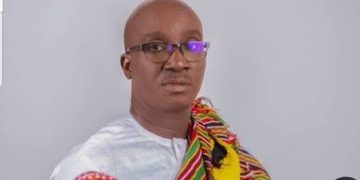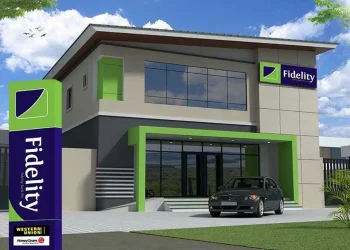Nigeria’s EV market is experiencing unprecedented growth as local assembly and production capabilities expand, highlighted by the recent unveiling of a high-performance, all-electric SUV manufactured on Nigerian soil. This milestone represents a pivotal moment for Nigeria’s EV market, signalling growing confidence in domestic manufacturing capacity and marking a new chapter in the country’s electric mobility transformation.
The vehicle driving this momentum is the M-Hero 917, a military-inspired electric SUV featuring a four-motor all-wheel drive system with near-instant torque delivery. Assembled in Nigeria through a strategic partnership between Chinese automaker Dongfeng and SAGLEV Electromobility, the M-Hero demonstrates how Nigeria’s EV market is attracting international collaboration while building local engineering expertise.
Nigeria’s EV Market Gains Momentum Across Africa
“This is more than just a car launch,” explains Michaela Abor Adebola, an energy mobility analyst based in Abuja. “It’s a marker of intent. It shows that global EV manufacturers are starting to see Nigeria not just as a market to sell into, but a country to build with.”
Nigeria’s EV market is now joining other African nations in the shift toward local electric vehicle assembly. Countries like Kenya, Rwanda, and South Africa have already established themselves as assembly hubs for electric buses, motorcycles, and utility vehicles designed for domestic needs. With Nigeria’s EV market entering this space, the continent’s electric mobility landscape is becoming increasingly competitive and diverse.
The scope of Nigeria’s EV market extends far beyond luxury SUVs. From high-end vehicles like the M-Hero to tuk-tuks, two-wheelers, and delivery bikes, the range of locally assembled electric vehicles in the country continues to expand rapidly.
Market Size and Growth Projections
According to Climate Scorecard, Nigeria’s EV market currently includes an estimated 15,000 to 20,000 electric vehicles on Nigerian roads as of 2025. While this represents a small fraction of the country’s total vehicle population, it marks a dramatic increase from five years ago when EVs were virtually absent from Nigeria’s automotive landscape.
Nigeria’s EV market is projected to experience robust growth, with analysts forecasting an annual growth rate of 6.8% through 2031, indicating strong potential for sustained expansion in the coming years.
Local Players Driving Nigeria’s EV Market Forward
Several ambitious local initiatives are fueling Nigeria’s EV market expansion. NEV Electric, a prominent local firm, has announced plans to produce 2,000 high-capacity EVs and up to 10,000 micro-EVs by the end of the year. As the manufacturing arm of Possible EVs, a company founded in 2021, NEV Electric aims to increase EV awareness in Nigeria while making electric vehicles more affordable for local consumers.
Spiro, one of Africa’s largest electric mobility companies, has significantly impacted Nigeria’s EV market by deploying over 33,000 electric motorcycles across the continent. The company’s innovative battery-swapping model has facilitated approximately 9 million battery swaps across seven African countries, gaining substantial popularity among urban riders and delivery services operating in Nigeria’s EV market.
In January 2025, Spiro announced a high-profile partnership with Afrobeats superstar Davido to promote clean, stylish mobility and sustainable living. This collaboration represents a broader cultural shift toward electric transport in Nigeria’s EV market, strategically blending technology, music, and climate action to reach Nigerian consumers.
Regional Manufacturing Hubs Emerge
Ogun State is positioning itself as a critical manufacturing and logistics hub for Nigeria’s EV market, successfully attracting both local startups and international firms. This strategic development is strengthening the foundation of Nigeria’s EV market infrastructure.
Phoenix Renewables operates a solar-powered facility in Ogun State, assembling electric three-wheelers specifically designed for last-mile delivery in urban and peri-urban areas. The company’s focus on clean transport and energy independence, utilizing off-grid solar systems, addresses Nigeria’s unreliable national grid while supporting Nigeria’s EV market growth.
JET Motor Company, an indigenous EV manufacturer, has established significant operations in Ogun State with an ambitious pipeline of electric vans and minibuses designed for corporate fleets, ride-hailing services, and inter-city travel. The company is developing vehicles specifically engineered for Nigeria’s challenging road conditions, with battery performance and chassis durability adapted to local requirements.
In 2024, Ogun State signed a comprehensive public-private agreement to accelerate EV adoption through dedicated EV zones, including planned charging infrastructure and training centers that will support Nigeria’s EV market expansion.
International Investment in Nigeria’s EV Market
China is playing an increasingly visible role in Nigeria’s EV market development. Major automakers including BYD, JAC, and Dongfeng have established presence in Nigeria through assembly partnerships and dealership networks, demonstrating international confidence in Nigeria’s EV market potential.
The M-Hero launch exemplifies how Chinese manufacturers are deepening their investment in Nigeria’s EV market, offering comprehensive financing options, after-sales support, and adapting vehicle models to local road and fuel conditions.
According to a February Bloomberg report, the expansion of Chinese EV brands in Nigeria’s EV market has been driven by high fuel prices and increasing consumer demand for affordable alternatives to petrol-powered vehicles. Lagos now hosts more than a dozen EV dealerships selling Chinese-made vehicles, many offering flexible payment plans and expanding after-sales support networks.
Infrastructure Development Supports Market Growth
Nigeria’s EV market is witnessing significant infrastructure development, particularly in Lagos where EV companies are establishing charging stations and battery swap hubs in key commercial zones.
In April 2025, Foltï Technologies launched eDryv in Lagos, introducing Nigeria’s first ride-hailing platform powered almost entirely by solar energy. This innovative service operates a fleet of Dayun-branded electric MPVs and SUVs with driving ranges up to 450 km, supported by solar charging hubs and a 460 kWh energy storage facility in Victoria Island.
eDryv offers competitive rides at under ₦320 (US$0.21) per kilometer and rewards eco-conscious trips through a “Green Coins” loyalty system that provides discounts on future fares. By employing drivers on full-salary contracts rather than selling or leasing vehicles, the platform ensures quality control while lowering barriers to entry in Nigeria’s EV market.
Foltï plans to expand its solar charging network and is targeting the establishment of an EV assembly plant in Abeokuta, Ogun State, by 2026-27 to strengthen local production capacity and value chains supporting Nigeria’s EV market.
Policy Framework and Government Support
Policy support for Nigeria’s EV market continues to evolve. While Nigeria’s national electric mobility policy awaits finalization, the National Automotive Design and Development Council (NADDC) has actively supported local assembly efforts that strengthen Nigeria’s EV market foundation.
The council has backed pilot projects and training programs while developing a comprehensive framework for EV charging infrastructure standards. Lagos State has demonstrated early interest in integrating electric buses into its public transport system, further supporting Nigeria’s EV market development.
Nigeria’s EV Market in Regional Context
According to sector analysts, Nigeria’s EV market is beginning to join African frontrunners, particularly those in the Eastern African region that have established strong electric mobility sectors.
“This is how you build an industry,” explains Ayodele Alabi. “Start with local assembly, create partnerships that stick, and build trust with consumers. We’re finally seeing all of that come together in Nigeria’s EV market.”
“While countries like Kenya and Rwanda have made headlines for electric motorbike adoption, Nigeria’s size, urban density, and manufacturing base give it unique advantages. Foreign automakers seem to be betting on Nigeria’s EV market potential.”
Challenges Facing Nigeria’s EV Market
Despite promising growth, Nigeria’s EV market faces significant challenges. Electricity supply remains unreliable across most parts of the country, and the cost of EVs, particularly high-end models, remains prohibitive for many potential consumers in Nigeria’s EV market.
Industry experts emphasize that without strong government incentives or a clear nationwide policy framework, Nigeria’s EV market growth may face constraints that could limit its full potential in the coming years.
However, the combination of local assembly capabilities, international partnerships, innovative business models, and growing consumer interest suggests that Nigeria’s EV market is well-positioned for continued expansion and could become a significant player in Africa’s electric mobility transformation.
bird story agency

Bird Story Agency is a specialist news agency driven by the resolve to project Africa by telling positive stories about the continent.


















